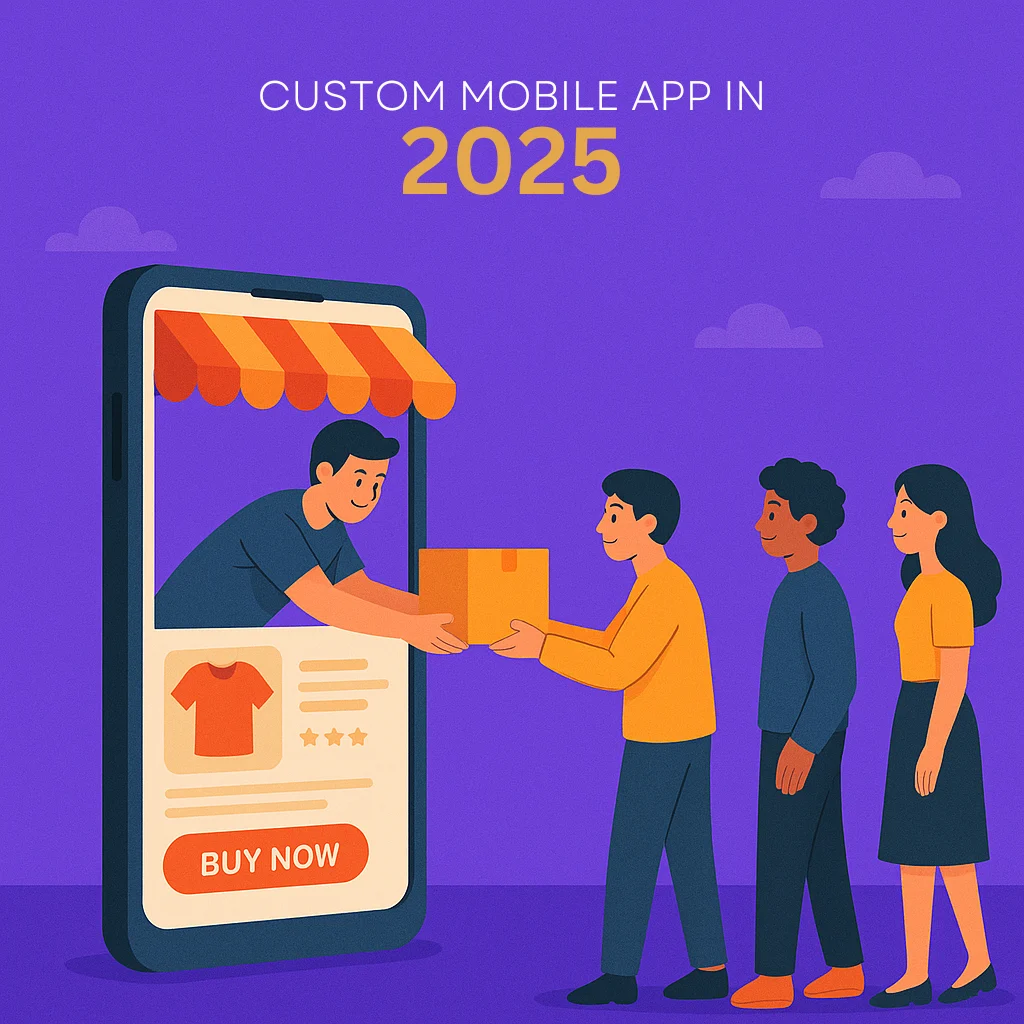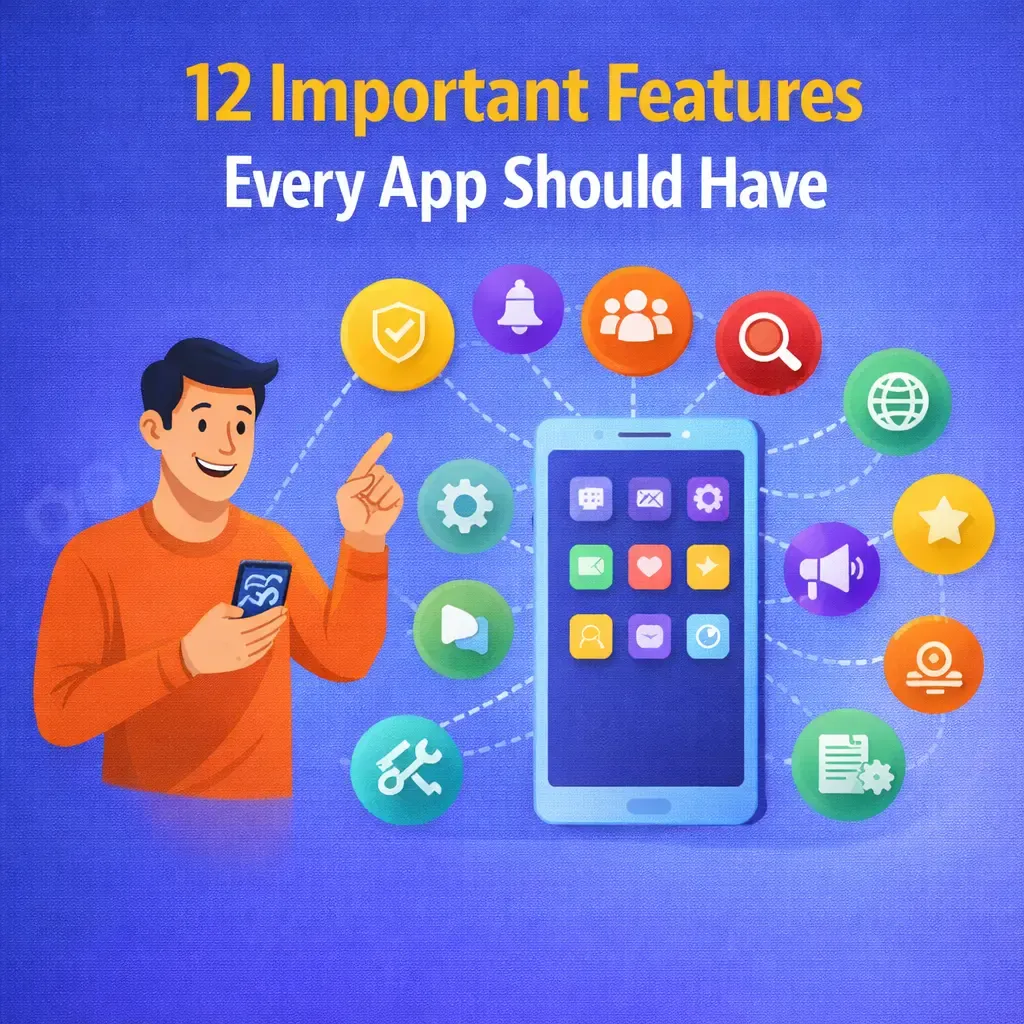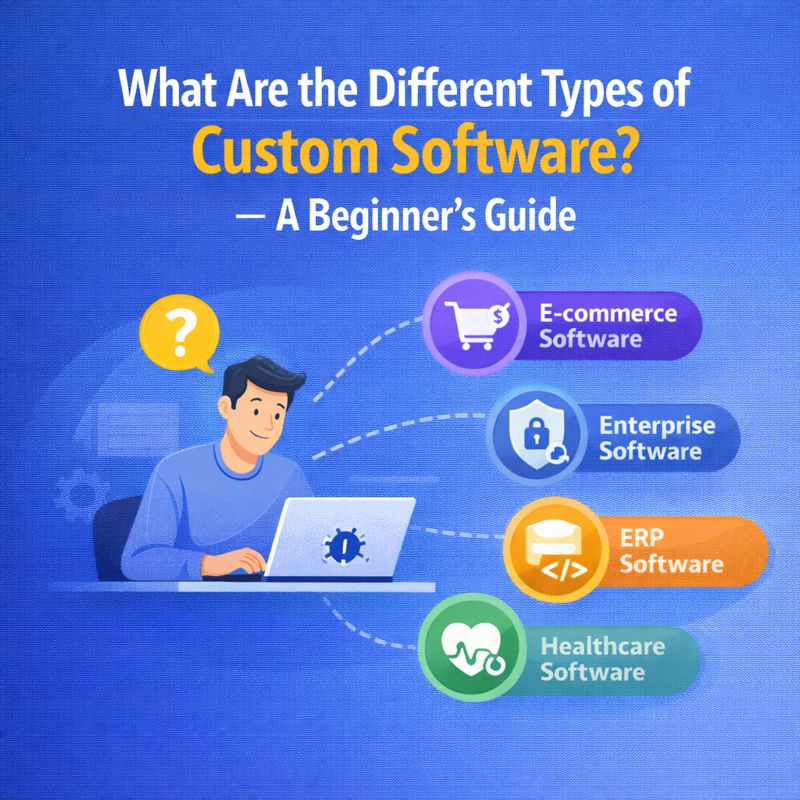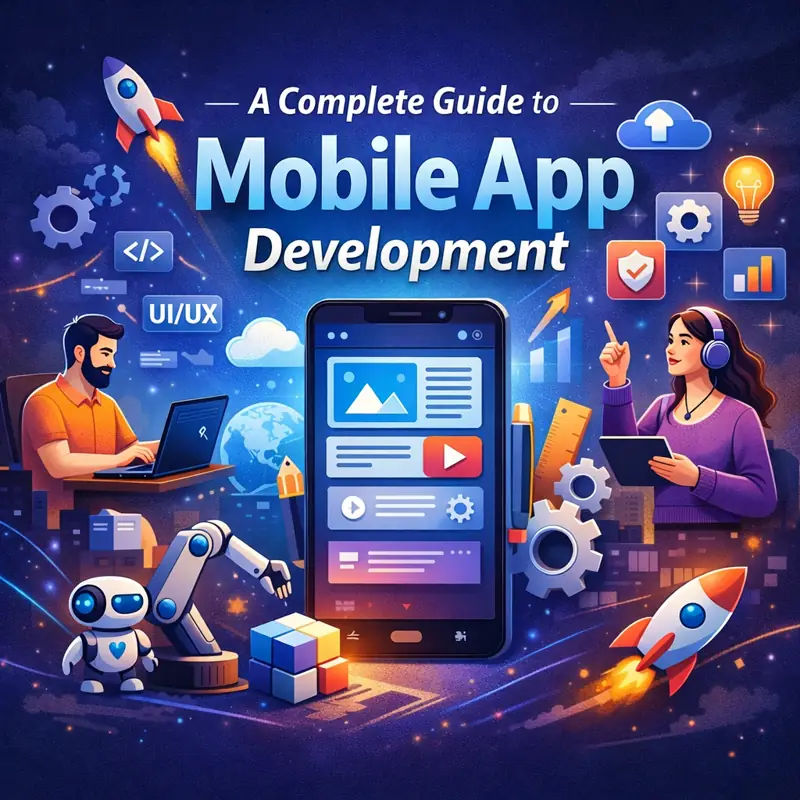Do you think your business need a custom mobile app and curious about Why Your Business Needs A Custom Mobile App in 2025? Whether it is browsing products, booking a service, or staying connected, mobile apps have become part of daily life. In 2025, having a custom mobile app for your business is not just a nice-to-have it is necessary.
As smartphones continue to shape how we live and shop, businesses that invest in custom apps or Mobile app 2025 are the ones staying ahead, building brand loyalty, improving customer experience, and opening new growth.
Importance of Mobile Apps in 2025
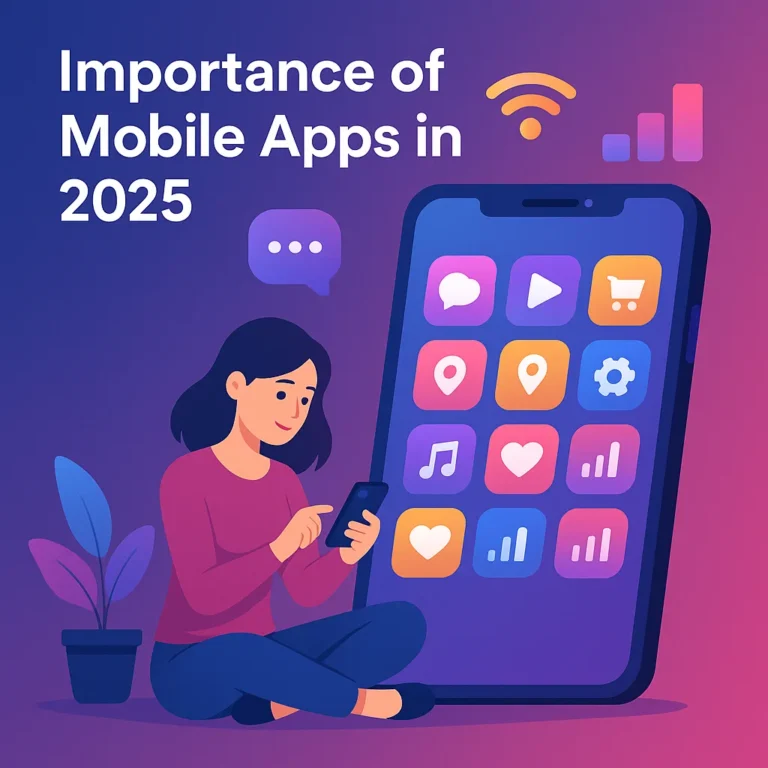
Still unsure if your business needs an app and why need a mobile app for business? Here is the reason; nowadays customers expect quick, convenient, and seamless interactions and a mobile app easily makes that possible.
It is not just about staying current. It is about being accessible, responsive, and easy to interact with. From driving sales to simplifying tasks for your team, mobile apps are becoming the backbone of how modern businesses operate; customer engagement, boost sales, simplify operations etc. it is an essential business tool.
Rising Mobile Usage Trends
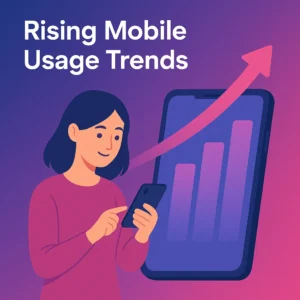
By 2025, more than 7.5 billion people will be using smartphones globally. Most of them spend the majority of their digital media time in apps not browsers.
Ordering food, managing bank accounts, scheduling appointments, all of it now happens inside apps. Even Google ranks mobile-friendly content higher through mobile-first indexing. If your audience is already connected with to their phones, your business should be there too.
Why Businesses Need a Custom App in 2025
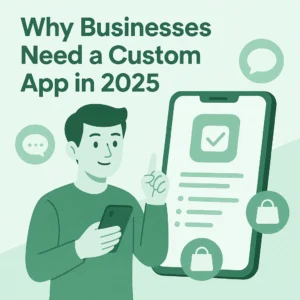
Every business has its unique goals, and your app should reflect that. There comes the question Why Businesses Need a Custom App, and a custom mobile app puts you in control of how you want customers to engage, what features to prioritize, and how your brand shows up.
Whether it is secure logins, personalized dashboards, or integrations specific to your industry, unique features, brand differentiation, specific requirements, custom apps built around your business needs, not one-size-fits-all solutions.
How to Start Building a Custom App
Start with your goal, do you want to generate leads and improve customer retention, or streamline service?
Once you are clear, sketch out the features that matter most. Then, find a development partner that understands your business as well as the technology. Emedia Infosoft is one such partner a reliable app development company in India, also serving locally from its Gwalior office.
Launching a Minimum Viable Product (MVP) is a smart first step. It lets you test your concept, get real feedback, and grow from there.
Comparison: Businesses With vs. Without Apps
Businesses without apps often struggle with slow response times, lower customer satisfaction, and weak digital presence.
On the other side, companies that embrace apps often see up to 30% improvement in customer retention rates. Find the customer satisfaction gap and apps simplify the way customers interact with your brand, helping you build stronger connections and stay relevant in a noisy digital world.
Website vs. Mobile App
A mobile-optimized website is important, but an app takes it further. Mobile app push notifications keep users engaged and apps load faster and can work offline. In addition, the personalization helps users feel seen and valued.
If your business depends on repeat customers, memberships, or daily use, an app offers more speed, control, and convenience than a website alone ever could.
Real-World Examples
Think about big brands like Starbucks, Sephora, and Nike. They do not just have apps; they have built entire customer experiences around them.
- Retail & E-commerce: Brands like Sephora and Nike use mobile apps for personalized shopping experiences, exclusive content, and loyalty programs, leading to higher engagement and revenue. E-commerce apps see 2x higher conversion rates than mobile websites.
- Service Providers: Consultants, tutors, and salons use apps for appointment booking, video consultations, and discounts.
- Healthcare: Clinics offer telehealth apps for booking, prescriptions, and virtual consultations, improving patient access and provider efficiency.
- Logistics & Transportation: Apps enable real-time tracking, digital proof of delivery, and communication with drivers.
- Finance: FinTech apps offer features like expense tracking, instant money transfers, and investment tools, improving customer trust and transparency.
- On-Demand Services: Mobile apps are the foundation for services like food delivery, taxi booking, and home cleaning, enabling real-time updates and direct communication.
Starbucks generates over 20% of its U.S. revenue through its app-based rewards program alone. Local businesses from salons and clinics to delivery services are also seeing real benefits through improved bookings, order tracking, and direct communication.
Advantages of Having a Mobile App
There are some great mobile app benefits for your business whether it is small or big.
- Better User Experience (UX): Apps designed for smooth, quick responses with minimal effort, encouraging frequent returns. They save preferences, order history, and booking details, making repeated interactions smoother and more satisfying. Moreover, 83% of users prefer apps to websites for a smoother shopping experience.
- Supports Business Growth: Apps provide features like customer analytics, loyalty programs, and referral options to understand user desires. Loyalty points, rewards, and exclusive offers built into the app keep users interested.
- E-commerce Optimization: Apps simplify the shopping experience by remembering login credentials, supporting digital wallets, and storing wish lists. They help reduce cart abandonment and support one-click checkouts.
- Helps Small Businesses Compete: Small and mid-sized companies use apps to stand out in competitive industries, offering features like reservation systems or appointment scheduling and discounts.
- Foundation for On-Demand Services: Apps are crucial for on-demand services (e.g., food, taxi, cleaning) by storing preferences, displaying real-time updates, and offering direct communication, leading to increased order volumes.
- Builds Stronger Brand Identity: A mobile app is an extension of your brand, offering a consistent feel through design elements like color schemes and fonts, and signalling professionalism and investment in customer convenience.
- Enhanced Marketing and Communication: Apps facilitate direct marketing through push notifications, promotions, and event updates, keeping customers informed and involved. Push notifications can achieve 60-80% open rates, far outperforming emails.
- Valuable Data & Customer Insights: Apps collect data on product views, app usage frequency, and active times, enabling data-driven decisions to improve business strategies and offerings.
- Improved Security and Trust: Well-designed apps with secure payment gateways, proper login methods, and encryption make users feel safer sharing data, earning higher levels of customer trust.
- Stronger Customer Loyalty: Apps encourage repeat business through in-app loyalty programs, personalized discounts, gamified experiences, and member-only offers.
- Offline Functionality: Unlike websites, mobile apps can function partially or fully offline, providing convenience for users in industries like travel or logistics where connectivity might be limited.
- Improved Operational Efficiency: Mobile apps can streamline internal operations such as employee scheduling, inventory management, customer support, and field service, improving workflow and communication within the organization.
- Cost-Saving in the Long Term: App creation involves initial investment, it offers greater long-term value compared to traditional advertising, continually serving customers without ongoing effort from your team.
- Global Reach and Accessibility: A mobile app provides 24/7 accessibility, which allowing customers to interact with your brand anytime, anywhere, expanding your reach beyond geographical limitations.
Trends to Watch in Mobile App Development (2025)
Make sure to follow these mobile app development trends because we are living in a fast-paced world. Make sure to have these features.
- AI-powered features for personalization.
- Voice search and virtual assistants for better communication.
- 5G-ready features for ultra-fast apps
- Utilise Flutter/React Native for budget-friendly cross-platform
- AR/VR for immersive shopping or learning and Progressive Web Apps (PWAs) for web-app hybrids.
FAQs
In 2025, having a mobile app is no longer optional—it’s a strategic necessity for businesses looking to grow and stay competitive. A custom mobile app enhances customer engagement, streamlines operations, and creates a direct communication channel with your audience.
With mobile apps, businesses can deliver personalized marketing, gain real-time insights into customer behavior, and provide fast, seamless service—which modern consumers expect. Apps also increase brand visibility, customer loyalty, and can significantly boost revenue growth by improving the overall user experience.
Whether you’re in retail, healthcare, education, or services, a mobile app helps your business meet evolving customer demands and ensures you’re ready for the mobile-first future.
The answer depends on your business goals, audience, and the experience you want to deliver. Both websites and mobile apps have their unique strengths.
When a Website is the Better Choice:
-
Wider Reach: Easily accessible from any device with a browser, no downloads needed.
-
Cost-Effective: Typically quicker and less expensive to develop and maintain.
-
SEO Benefits: Search engines can easily index websites, improving discoverability.
-
Instant Access: Users can visit your site with a single click or search—no installation required.
When a Mobile App is the Smarter Option:
-
Superior User Experience: Apps are built specifically for mobile devices, offering smooth, intuitive navigation.
-
Faster Performance: Apps utilize device resources for quicker loading and offline functionality.
-
Push Notifications: Keep users engaged with real-time updates, reminders, and promotions.
-
Advanced Features: Apps can access device-specific tools like GPS, camera, or biometrics.
-
Personalization: Apps allow more tailored content and user-specific features.
Consider the Trade-offs:
-
Apps require more time and investment for development, especially if you target both iOS and Android.
-
Websites are easier to discover, while apps need promotion and downloads to gain traction.
-
Maintenance and updates for apps are more demanding compared to websites.
Our Recommendation:
If you’re looking for broad visibility and sharing general content, start with a website. But if your business thrives on high user engagement, personalization, and advanced functionality, a custom mobile app is the way forward.
Many successful businesses combine both—a professional website for reach and a mobile app for performance, loyalty, and user engagement.
The cost to build a mobile app can vary widely—from $10,000 to $300,000+—depending on several factors such as app complexity, platform, design, features, and the development team’s location.
General Cost Breakdown:
-
Simple Apps (basic functionality like calculators or to-do lists):
💰 $10,000 – $40,000 -
Moderate Apps (e.g., eCommerce, booking, or utility apps):
💰 $40,000 – $100,000 -
Complex Apps (e.g., social networks, apps with AI/AR/VR, or multi-platform integrations):
💰 $100,000 – $500,000+
Key Factors That Influence App Development Cost:
✅ App Complexity
More features = higher cost (user login, payments, chat, GPS, etc.)
✅ Platform Choice
Developing for both iOS and Android costs more than a single platform.
✅ UI/UX Design
Custom, interactive designs require more time and budget than using standard templates.
✅ Development Team Location
Rates vary globally. For example, outsourcing to regions like India can be more cost-effective than hiring developers in the US or Europe.
✅ Ongoing Maintenance & Updates
After launch, apps require regular updates, bug fixes, and server maintenance, which add to long-term costs.
Cost Models:
-
Fixed Cost: Ideal for well-defined projects with clear scope.
-
Hourly Billing: Suitable for evolving apps where flexibility is needed. Hourly rates vary from $15 to $150+ based on the developer’s expertise and region.
Example Estimates:
-
🛒 Basic eCommerce App: $40,000 – $70,000
-
📱 Social Media App: $100,000 – $300,000
-
🧠 AI/AR/VR App: $150,000 – $500,000+
Partnering with the Right Development Company
Getting the right team on board is key. Look for a partner that understands your goals, not just the tech stack.
Emedia Infosoft stands out as a trusted app development company in India. As a best provider of mobile app development Gwalior, our expert team takes care of everything; design, development, testing, and updates, end-to-end services, which ensuring you get an app that performs and evolves with your business.
Conclusion
Mobile apps have become an essential thing and are no longer a luxury by 2025. They make you interrelate more easily, react more quickly and learn more intelligently as a competitive advantage.
When you feel the time is right to future-ready business, then you should go ahead. Define a highly stable professional like Emedia Infosoft develop a mobile application that will make your business be in every pocket that counts.
